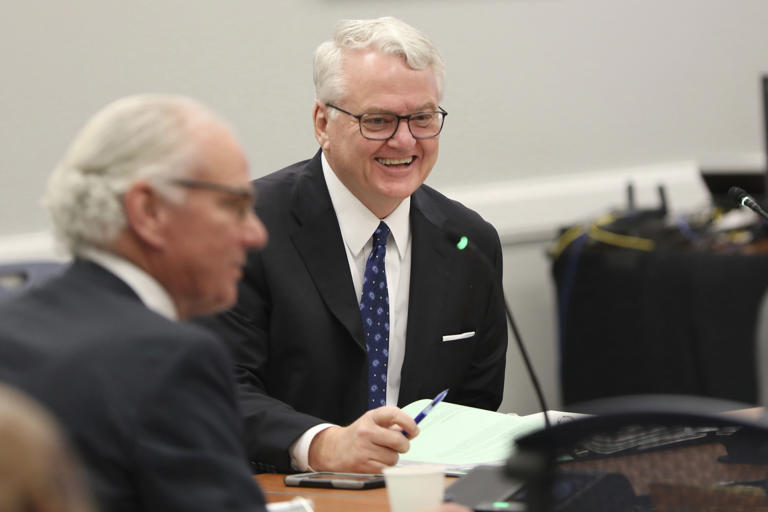South Carolina finds itself grappling with a puzzling financial situation as approximately $1.8 billion has accumulated in a bank account over the past decade. Efforts by state and private accountants to trace the origins and intended destinations of this cash have thus far proven inconclusive.
Republican Sen. Larry Grooms, spearheading a Senate panel probing the matter, likened the scenario to entering a bank only to be informed of substantial funds in the vault with no clear ownership.
This development adds to the state’s recent fiscal challenges, which include a $3.5 billion accounting error stemming from double postings in higher education accounts, ultimately leading to the resignation of the elected Republican comptroller general.
The current issue appears to involve actual cash and involves the elected Republican Treasurer Curtis Loftis, whose responsibility is issuing state checks. Investigative efforts are ongoing, revealing instances where money was shifted to balance the state’s books when discrepancies arose.
Acknowledging the seriousness of the situation, Senate leaders have proposed a constitutional amendment to make the comptroller general an appointed position, aiming to depoliticize the role. There’s a suggestion to extend this to the treasurer if satisfactory explanations are not provided.
Despite the lack of clarity regarding the origin of the $1.8 billion, Republican Governor Henry McMaster assures that no funds have been lost. Treasurer Loftis has asserted that the money was invested, yielding substantial interest for the state, though questions remain about why this information wasn’t communicated to the General Assembly.
In a letter dated March 14 addressed to Senator Grooms, Treasurer Loftis accused the comptroller general of attempting to shift responsibility for rectifying the financial situation onto him, stating that a timeline to provide answers within a few weeks was unfeasible. Loftis further claimed that his office had dedicated thousands of hours to researching the account, yet the Comptroller General’s Office had refused to engage with them or share pertinent information.
An audit examining the communication between the Treasurer’s Office and the Comptroller General’s Office found deficiencies in their interaction. Despite detailed questions from lawmakers, the treasurer has not provided substantive responses, opting instead to voice his grievances on social media, alleging political attacks and blame-shifting by Comptroller General Brian Gaines, who assumed office following the resignation of Richard Eckstrom.
Both Gaines and Loftis are scheduled to appear before Senator Grooms’ committee, with Grooms expressing confidence in Gaines’s cooperation. While Grooms believes that Loftis’s office should have detected the mistake, it was ultimately flagged by the Comptroller General’s Office.
South Carolina has a history of accounting issues dating back to its earliest days. The Treasurer’s Office, established in 1776, initially operated under the General Assembly’s selection. By the early 1800s, the state’s finances were described as being in a state of confusion. The first comptroller general identified approximately $750,000 owed to the state, equivalent to roughly $20 million today adjusted for inflation.
The revelation of $1.8 billion in unallocated funds coincides with a budgetary shortfall, as $3 billion in state agency requests went unfunded in the recently passed budget. Legislative leaders and the governor are hesitant to access these funds without a comprehensive report on the matter.
